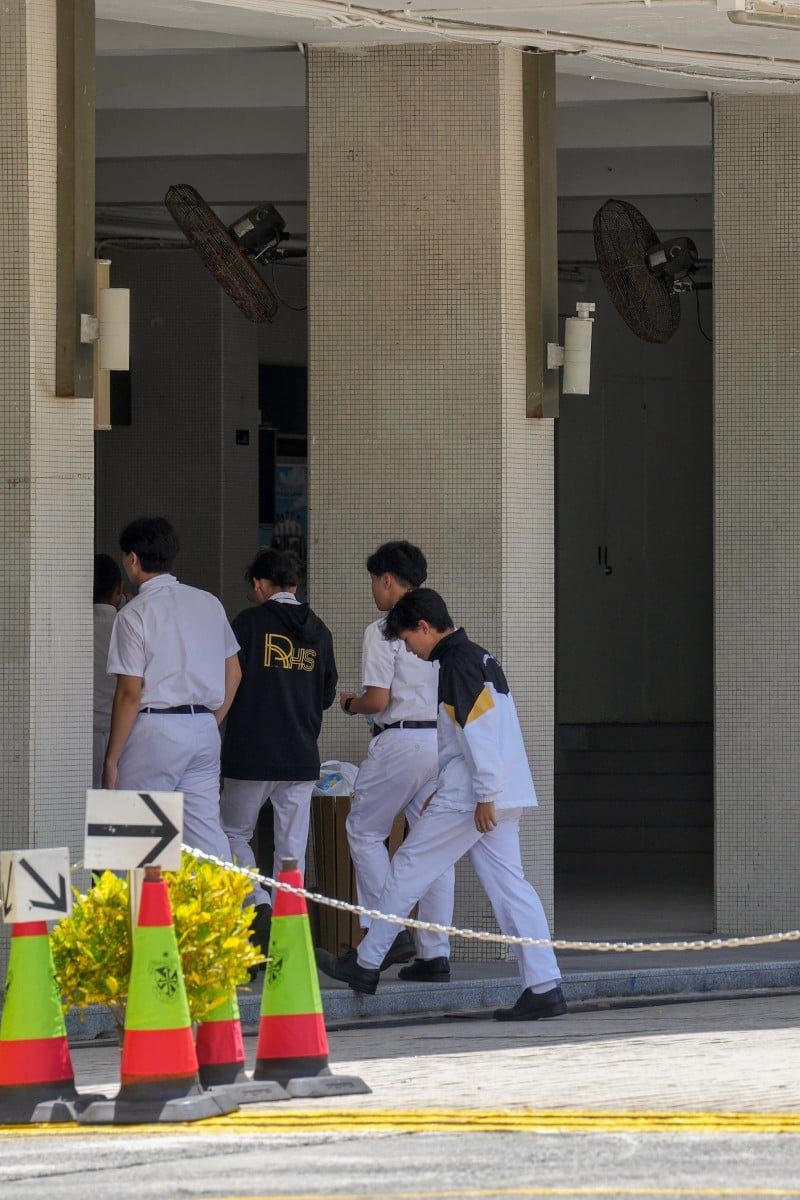 In its first assessment of creative thinking, the Programme for International Student Assessment found that 15-year-old Hong Kong pupils fell below the Organisation for Economic Cooperation and Development average. Photo: Elson Li
In its first assessment of creative thinking, the Programme for International Student Assessment found that 15-year-old Hong Kong pupils fell below the Organisation for Economic Cooperation and Development average. Photo: Elson LiIn a global study on creative thinking, Hong Kong students ranked well behind table toppers in Singapore. Hong Kong’s pupils scored just below average and an education expert called the result a “wake-up call”.
In its first assessment of creative thinking, the Programme for International Student Assessment (Pisa) found that 15-year-old Hong Kong pupils fell below the Organisation for Economic Cooperation and Development (OECD) average, despite routinely scoring above average in the core subjects of reading and maths.
But Hong Kong ranked first overall among higher-performing jurisdictions in education equity, measured as the percentage difference in performance of students due to socioeconomic backgrounds.
The scores from the 2022 assessment were revealed on Tuesday. Results for maths, reading, and science were announced last December.
Professor Hau Kit-tai, national project manager of Hong Kong Pisa 2022, said the overall results showed the need for a change in “attitudes” towards creativity in the classroom.
“This is a wake-up call,” Hau said. “It tells us our students are really not good at … thinking outside the box.”
Hong Kong’s secondary school students fare poorly in global Pisa study
Held every three years, Pisa is a worldwide study which tests 15-year-old students on core subjects of mother-tongue literacy, maths and science. Since 2012, each cycle has also included a rotating “innovative domain”.
Previous non-traditional subjects have included problem solving and “global competence”.
This year’s creative thinking assessment included measurements of students’ abilities to generate, evaluate, improve and communicate ideas, as well as social and scientific problem solving. Hong Kong scored lower than 16 other places out of the 64 jurisdictions that joined the assessment.
Hong Kong scored 32 overall, which was the same as Israel but just below the OECD average of 33. Top performing jurisdictions included first place Singapore, which scored 41, and South Korea and Canada, both at 38.
Hong Kong students performed best at expressing their ideas through writing, at 47.6 points. The lowest scores were in scientific problem solving and expressing ideas through visual means, at 25.9 points and 25.7 points respectively.
There were also differences related to gender, with girls outperforming boys by 3.78 points, compared with the OECD average of 2.72 points.
The Czech Republic, Macau and Taiwan were the only other jurisdictions among the 64 in the study that performed at or below average in creative thinking despite performing above average in reading and maths.
But among jurisdictions that scored over 30, Hong Kong ranked first in education equity at 5.1 per cent, compared with 14.1 per cent for Singapore, while the OECD average was 11.6 per cent.
The Education Bureau said the findings showed that family background and socio-economic status had “minimal bearing” on student performance and the city’s education system “provided high-quality and equal education opportunities”.
Hau said top performing jurisdictions such as Singapore were likely to foster greater creativity in their students through classroom brainstorming and other “open-minded” exercises, whereas Hong Kong students might judge an idea based on its usefulness or practicality and dismiss those viewed as “crazy” or unworkable.
This resulted in answers that were often more “traditional” and similar to their classmates, he said.
“That will hinder our development,” Hau said. “In the modern world, where computers are doing a lot of traditional [tasks] for us, human beings should be thinking more outside the box and creating new solutions.”
Last December, Pisa revealed that Hong Kong students dropped from 10th to 11th place in reading, their worst performance since the study was introduced in 2000. But local pupils rose two spots to seventh place in science, and maintained their fourth place standing in maths.
